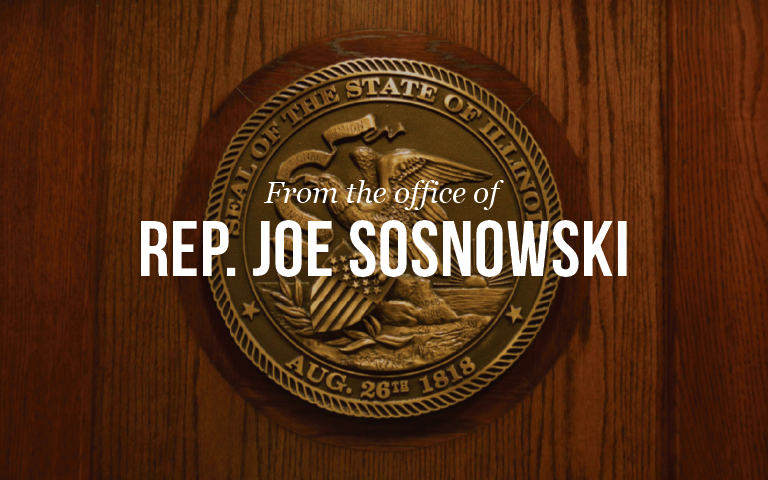By State Representative Joe Sosnowski
The question of reinstating passenger rail service to the Rockford region has generated recent renewed debate within our community. Petitions are currently being circulated seeking to put a nonbinding referendum on the November ballot in Boone and Winnebago Counties asking voters whether the State should reinstate passenger rail service from Chicago to East Dubuque. This question misses the point and is a gross oversimplification of the issue.
During former Gov. Pat Quinn’s administration, negotiations between the Illinois Department of Transportation (IDOT) and Canadian National Railroad (CN) for the right to use CN tracks along the proposed routes proved to be unsuccessful. This prompted the Quinn Administration to announce a plan in April 2014 to reinstate Amtrak commuter rail service to Rockford with stops in Belvidere, Huntley, and Elgin; utilizing tracks owned by Metra and the Union Pacific Railroad (UP).
The campaign promise to bring Amtrak to Rockford is the type of political deceit voters loathe. A promise made in desperation that had no plan, no funding, and no moral account to the state’s financial condition. The train never came to fruition because Gov. Quinn overpromised $233 million in capital funds the state didn’t have to invest and lacked expenditures for future maintenance.
Rockford Register Star columnist Chuck Sweeny in his July 4 editorial suggested a better question is; “Would you support a sales tax to bring commuter rail service to Winnebago and Boone counties?” There is no doubt that in order to secure dependable commuter service, there exists a cost to the State, to a city, and to taxpayers. Input from local families and taxpayers through the referendum process is a great way to determine whether public support exists for a sales tax increase to bring commuter rail service back to our area.
Belvidere and Rockford cannot obtain commuter rail service through Metra unless Boone and Winnebago Counties first vote to join the Regional Transportation Authority (RTA), which is financed by fares and a sales tax of 1 percent in Cook County and one-quarter percent in each of the five collar counties. If our community wants commuter rail service, our local officials have to vote to join the RTA and collect the necessary taxes. Practical considerations also must be weighed regarding the rights to use a portion of tracks owned by privately-held companies CN and UP.
The benefit of commuter rail service in the Rockford region is not at issue. Practical considerations about the right to use privately-owned tracks; giving local voters the ability to guide any decision about increasing sales taxes; and determining the daily frequency of service on any potential route are all issues that must be worked out before commuter rail service has the possibility of returning to our region.
Simply asking voters if they would like a train in a nonbinding referendum this fall achieves nothing. If the circulators of the petition drive are truly sincere in their cause, they will start by educating voters about the process, its cost to local taxpayers, and overcoming the practical hurdles in our pathway. This is a project that needs proper regional planning and not more empty campaign promises.
